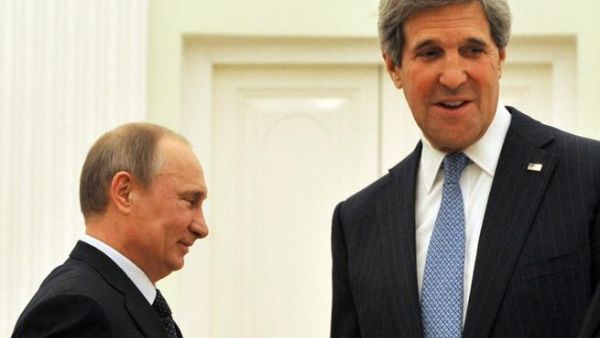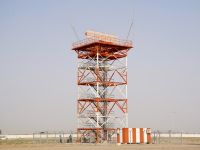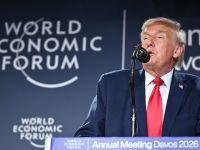The U.S. and Russia on Tuesday set aside more than two years of differences in a bid to resolve Syria’s civil war, saying they’d convene an international conference to try to corral President Bashar Assad’s regime and the rebels into talks on a political transition.
U.S. Secretary of State John Kerry told a joint news conference with Russian Foreign Minister Sergey Lavrov that the aim was to bring together representatives of the Syrian government and opposition at the conference possibly by the end of this month.
The announcement followed a meeting between Kerry and Russian President Vladimir Putin in the Kremlin to discuss the conflict, which has divided global powers and generated some of the frostiest exchanges between Washington and Moscow since the Cold War.
It also came two days after a series of Israeli airstrikes on military facilities in the Syrian capital, Damascus, which has sharply escalated the confrontation and prompted fears of a regional conflagration.
While Kerry told Putin that common interests in a stable Middle East could bridge divisions among the big powers, Putin kept Kerry waiting three hours before the meeting, fiddled with a pen while his guest spoke and made no mention in his own public remarks on the conflict.
Yet with the killing now in its third year and no end in sight as U.N. intervention remains stymied by international arguments, Kerry struck a positive tone as he set about trying to narrow differences sufficiently to agree a plan for a settlement that proved out of reach at talks in Geneva almost a year ago:
“The United States believes that we share some very significant common interests with respect to Syria – stability in the region, not having extremists creating problems throughout the region and elsewhere,” Kerry told Putin.
“We have both embraced in the Geneva communique a common approach, so it’s my hope that today we’ll be able to dig in to that a little bit and see if we can find common ground.”
The United States and Russia endorsed a plan in Geneva last June that called for the creation of a transitional government in Syria, but which left open the question of what would happen to Syrian President Bashar Assad.
Long-time arms supplier to Assad and suspicious of Western aid for opponents of authoritarian leaders around the world, Moscow says Assad’s departure must not be a precondition for a dialogue.
Kerry’s visit was intended to help improve relations and pave the way for Obama to hold talks with Putin in September, when Russia hosts a summit of the Group of 20 nations. Obama and Putin are also to meet at a Group of Eight summit in Britain in June.
The United States, reluctant to give military aid directly to an insurgency that includes militant Islamists but alarmed that violence is continuing and may spread, is considering a plan to provide weapons to vetted units of the Syrian opposition.
Speaking about the U.S. strategy, Kerry suggested the Obama administration would consider holding off on the plan if a peace strategy takes hold in coming weeks.
“The alternative ... is that there is even more violence. The alternative is that Syria heads closer to an abyss, if not over the abyss and into chaos,” Kerry told a joint news conference with Lavrov.
“The alternative is that the humanitarian crisis will grow. The alternative is that there may be even a breakup of Syria,” he added.
Putin, a former KGB spy who accused Washington of helping foment protests against him last year, was less effusive but expressed hope that relations would improve.
“We recently had a substantial phone conversation with President [Barack] Obama. And we had an opportunity to discuss many aspects of our relations,” Putin said.
“I think it is very important that our key ministries, our foreign ministries and agencies, work together to resolve the acutest issues of the modern world.”
The Israeli airstrikes in Syria have heightened a sense of urgency in a region strained by confrontations between Assad’s ally Iran and other Arab powers, as well as the hostility between Israel and its neighbors, notably Iran and Hezbollah.
The strikes put Syria and its ally Iran in a difficult position because they would run the risk of drawing Israel’s powerful army into the war if they retaliate.
Assad commented on the Israeli attacks for the first time Tuesday, saying that Syria was capable of facing Israel, but stopped short of threatening retaliation for the attacks near the Syrian capital of Damascus.
He was speaking after a meeting with Iranian Foreign Minister Ali Akbar Salehi, who paid an unexpected visit to Damascus.
Assad said Israel was supporting terrorists, and that Syria was “capable of facing Israel’s ventures.”
Syria dispatched a proxy Damascus-based Palestinian militant group, the Popular Front for the Liberation of Palestine General Command to threaten retaliation over the Israeli airstrikes.
But the relatively tepid response to Israel’s breach of Syrian sovereignty highlighted Assad’s limited options as he, along with Iran and Lebanon’s Hezbollah, become bogged down in a fight for survival against armed rebels.
“We are fully confident that Syria will emerge victorious from the crisis,” Salehi said.
Earlier, during a visit to Jordan, where the U.S. is considering arming secular opposition groups, Salehi called for dialogue between the Syrian regime and “peaceful” opposition, warning that the repercussions of the conflict would impact the region. “We have called for talks between the Syrian government and the peaceful opposition to form a transitional government,” Salehi told a joint news conference with his Jordanian counterpart Nasser Judeh in Amman, but stressed that talks could not involve the jihadist Nusra Front.








